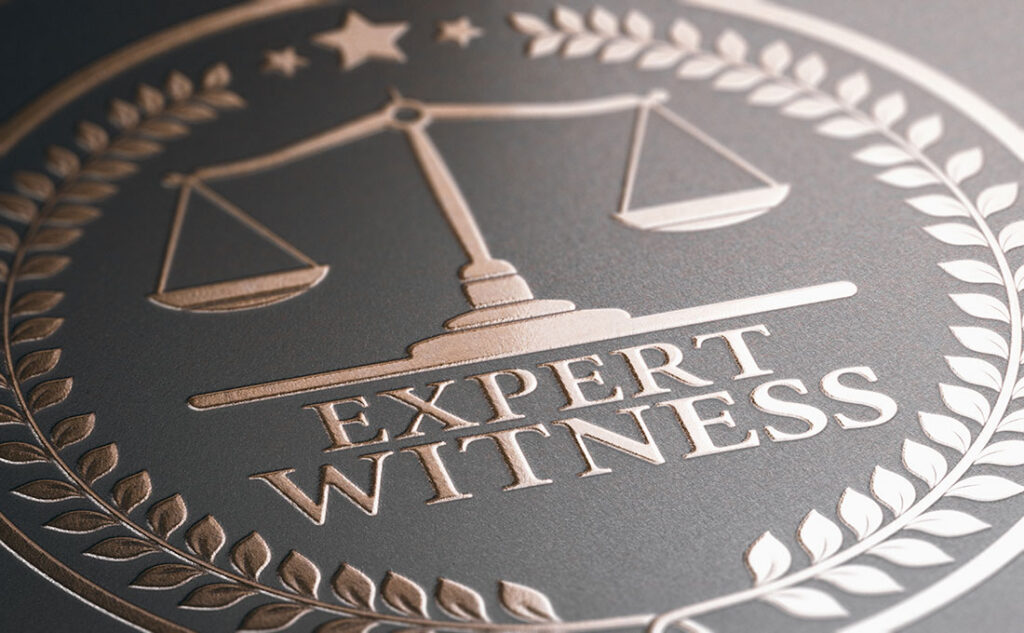If a PI job ends up as a court case, there is a good chance the PI will be called to testify. Private investigators working for law firms are specifically expected to serve as expert witnesses based on what they find. However, being an expert witness is much more than just showing up on time wearing a tie: Attorneys will expect preparation, professionalism, and strong communication skills. Here are tips every PI should keep in mind.
Check Your Licensing Requirements
Licensing requirements for expert witnesses can vary, and you may be able to present testimony on evidence you collected as a PI without a formal license (here’s what Texas guidelines have to say about it). However, if you are gathering evidence with the intent to testify about it (as all PIs working for attorneys generally are) then you will need a license, and competent attorneys will want you to provide credentials before considering you as an expert witness. Plus, getting a PI license is simply a good idea for your business.
Work with an Attorney to Develop a Report
While attorneys and PIs are used to creating separate reports, serving as an expert witness requires more collaboration. Prepare to go over the role of a private witness and exactly what you will be saying, and how to deal with any approaches made by other attorneys (this type of communication is largely protected according to federal rules). Attorneys will have strict guidelines for what is admissible in court and will want as much information as you can provide during this time.
Remember, your primary role is to support this particular law firm’s argument. PIs that work for a specific law form have a built-in advantage with this scenario, but it’s not required for successful collaboration.
Prepare for an Early Deposition
Not only is the deposition an important part of the case, but it’s also a great way for private investigators to understand what they will be presenting and how to explain their testimony or evidence. It’s also going to happen early: Expert witnesses are typically identified and prepared at least 90 days before the trial for “affirmative” witnesses that a prosecutor will be interested in using.
However, when expert reports are issued, the opposing counsel may also want to depose an expert witness (albeit typically with a stricter timeline). This type of deposition will search for any flaws, doubts, or lines of attack that could be used in court, so it’s important that the private investigator is prepared for this. Ask your attorney for guidance if you are not! Everyone has to start somewhere, and the expert witness role will get easier with time.
Organize and Understand Your Own Evidence
Many PIs will be going over their own evidence collected on surveillance, through online research, via interviews or phone calls, and more. This evidence will be thoroughly documented before being used in a case, and the PI must also be extremely familiar with it. An expert witness must refer to and locate pieces of evidence immediately in whatever medium they are presenting in. The phrase “know it like the back of your hand,” comes to mind.
Practice Your Professional Demeanor
It’s important to avoid becoming emotional, irritated, or combative as an expert witness, no matter how much you may be baited. Always stay calm and objective. Confidence in your own evidence and experience can help a lot here, which is another reason thorough preparation is helpful.
Along with this, it’s also vital to never stretch your testimony into fabrication or areas where you may be ignorant of the facts. Never make assumptions, especially as a witness! When in doubt, always ask for clarification on a point before answering.
Be Careful Providing Your Opinion
At times, expert witnesses may be asked to provide their opinion about a specific aspect of a case. Sometimes a PI may be asked about what they thought of a potential crime scene, or if an act of an observed subject appeared to be criminal. If they have significant experience working with the police, they may be asked their opinions on specific police actions. It’s even more important to be objective and careful with opinion-based testimony. If you don’t feel your experience or history allow for a proper answer, say so.
Practice Proper Behavior While on Cases
If you are interested in providing testimony services, it’s more important than ever to document your cases thoroughly and observe proper behavior. Illegal activities like trespassing onto property, illegal surveillance techniques, banned pretexting to solicit information, and more can ruin your evidence and an associated court case. Stay within the bounds of the law and check on the details if you aren’t sure about a certain approach.
Final Note: Using Your Witness Experience
Once you have built up some experience as an expert witness, don’t be afraid to advertise these services! This may be a valuable bonus for a client or attorney looking for a reliable PI. Avoid releasing any details of ongoing cases, but feel free to cite how long you’ve been serving as a witness, how many court cases you have testified at, or the type of cases where you have served as a witness.






